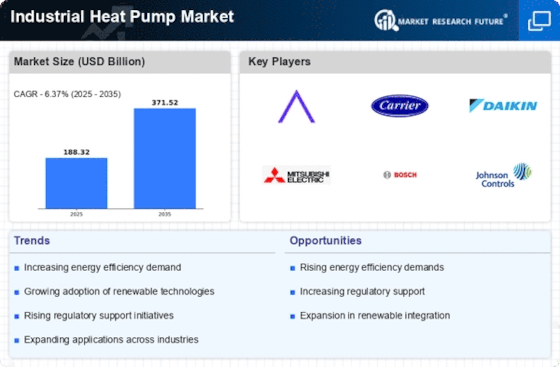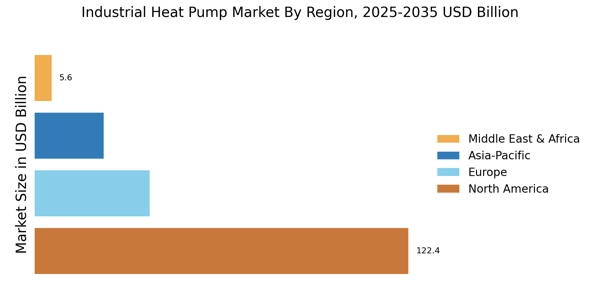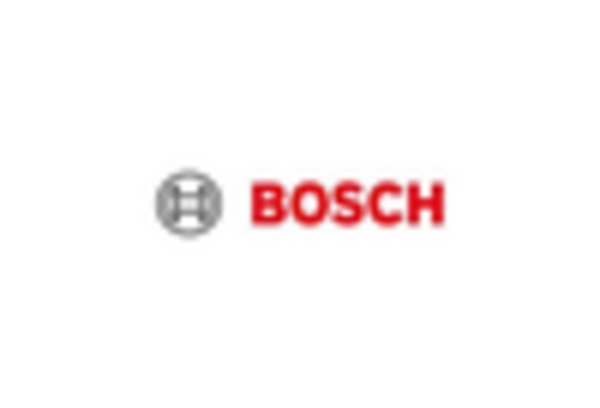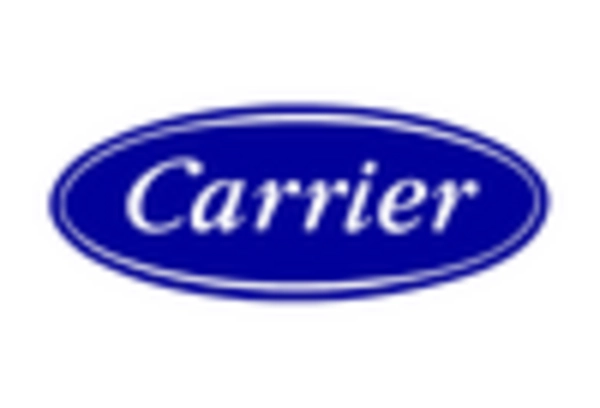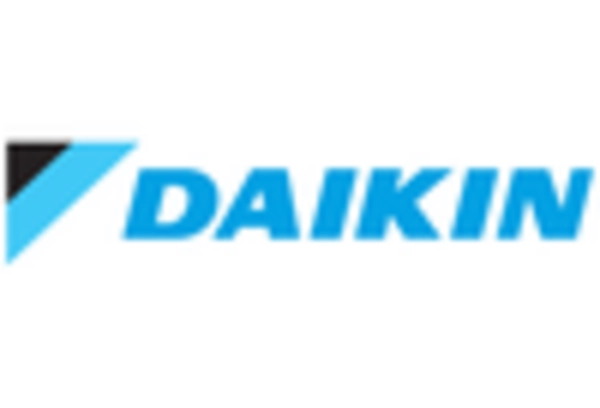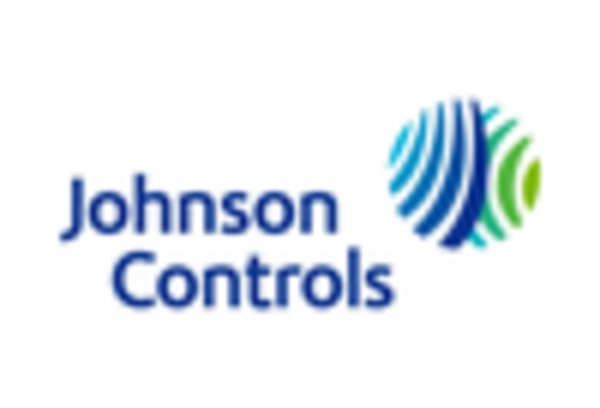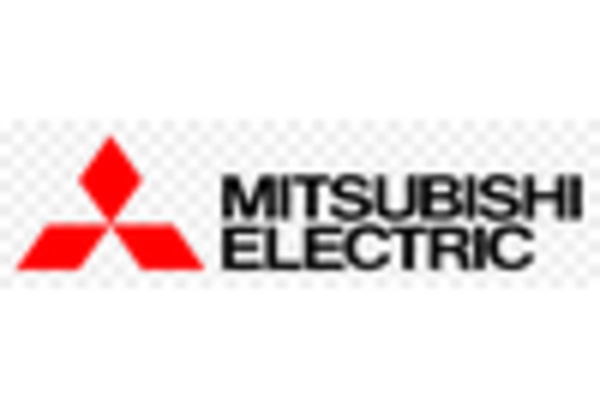Growing Focus on Decarbonization
The Industrial Heat Pump Market is witnessing a robust growth trajectory, largely fueled by the global emphasis on decarbonization. As nations strive to meet their climate targets, industries are under pressure to reduce greenhouse gas emissions. Heat pumps, which can significantly lower carbon footprints by utilizing renewable energy, are becoming a preferred choice for many sectors. The market data indicates that the adoption of heat pumps can reduce CO2 emissions by approximately 30% compared to conventional heating systems. This trend is particularly pronounced in sectors such as food processing and chemical manufacturing, where energy-intensive processes are prevalent. The growing focus on decarbonization is thus a critical driver for the Industrial Heat Pump Market, as companies align their operations with sustainability goals and regulatory requirements.
Increasing Industrial Energy Costs
The Industrial Heat Pump Market is experiencing a notable surge in demand due to rising energy costs across various sectors. As industries grapple with escalating energy prices, the need for efficient heating solutions becomes paramount. Heat pumps, which utilize renewable energy sources, offer a cost-effective alternative to traditional heating methods. This shift is particularly evident in manufacturing and processing industries, where energy consumption constitutes a significant portion of operational expenses. According to recent data, the adoption of heat pumps can lead to energy savings of up to 50%, making them an attractive option for businesses aiming to reduce costs. Consequently, the increasing industrial energy costs are driving the growth of the Industrial Heat Pump Market, as companies seek to optimize their energy usage and enhance overall operational efficiency.
Rising Awareness of Environmental Impact
The Industrial Heat Pump Market is experiencing growth driven by the rising awareness of environmental impacts associated with traditional heating methods. As industries become more cognizant of their ecological footprints, there is a growing shift towards sustainable heating solutions. Heat pumps, which utilize renewable energy sources and have lower emissions, are increasingly viewed as a responsible choice. Market data reveals that companies adopting heat pump technology report not only reduced energy costs but also enhanced corporate social responsibility profiles. This heightened awareness is particularly influential in sectors such as textiles and pharmaceuticals, where sustainability is becoming a key differentiator. Thus, the rising awareness of environmental impact is a crucial driver for the Industrial Heat Pump Market, as businesses seek to align their operations with environmentally friendly practices.
Supportive Government Policies and Incentives
The Industrial Heat Pump Market is benefiting from supportive government policies and incentives aimed at promoting energy efficiency and sustainability. Many governments are implementing programs that encourage the adoption of heat pump technology through financial incentives, tax breaks, and grants. These initiatives are designed to reduce the initial investment costs associated with heat pump installation, making them more accessible to a wider range of industries. Recent data indicates that countries with robust incentive programs have seen a 40% increase in heat pump installations over the past few years. This supportive regulatory environment is fostering growth in the Industrial Heat Pump Market, as businesses are more inclined to invest in energy-efficient technologies that align with governmental sustainability objectives.
Technological Advancements in Heat Pump Systems
The Industrial Heat Pump Market is being propelled forward by rapid technological advancements in heat pump systems. Innovations such as improved refrigerants, enhanced heat exchange technologies, and smart control systems are making heat pumps more efficient and user-friendly. These advancements not only increase the performance of heat pumps but also expand their applicability across various industrial sectors. For instance, the integration of IoT technology allows for real-time monitoring and optimization of heat pump operations, leading to further energy savings. Market data suggests that the efficiency of modern heat pumps has improved by over 20% in recent years, making them a more viable option for industries seeking to enhance their energy efficiency. Consequently, technological advancements are a significant driver of growth in the Industrial Heat Pump Market.


